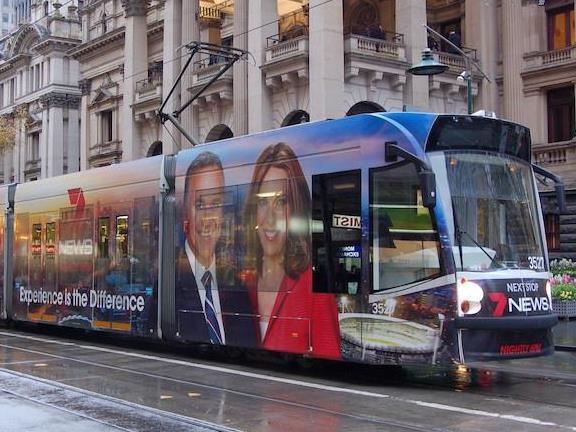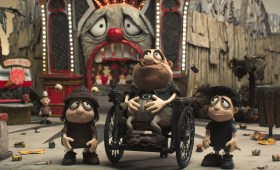Image: The pervasive power of a major media player.
Airtasker, set up in 2012 by Tim Fung and Jonathan Lui, is an online jobs board for everything from dog walking to web design to painting murals in your local chip shop. The user is basically auctioning the opportunity to perform a task.
Seven West Media has now bought 15% of the company, which means a television network is now actively involved in the transformation of freelance work.
Airtasker brings opportunities to people in the arts and screen sectors who are short of work or studying or simply weaving creativity with menial work. It’s a way the ordinary punter can access an artists to paint their portrait, a videographer to film Grandma’s 80th or a writer to craft a pitch.
But it also pushes wages down, is ripe for exploitation, wrecks existing business arrangements (Hi, Jim…) and is beyond union protection. Think Seven Eleven, which at least is large and ugly and owns something to make it vulnerable.
,blockquote> They don’t have the interest in protecting the worker and the job which a real life agent has.,/blockquote>
At the moment, it is focused on those tasks which overwhelmed urban professionals want to outsource with minimal brain involvement. You can hire someone to assemble your Ikea furniture, for instance. But micropayments to solve the problems of helpless urbanistas is pretty small beer for Kerry Stokes and the Seven Network. What is going on?
Airtasker now claims 600,000 users in Australia, and ‘over $40 million worth of tasks are processed’. Savvy digital natives will know the idea first surfaced here as international service called oDesk, which was mostly used for exportable tasks which can be performed much cheaper overseas. The oDesk platform was in competition with Elance, and the two combined in 2014, to create a company worth a cool US$1b.
According to the Courier Mail, 3.7m Australians freelanced in 2014, claimed to be around 30% of the total workforce, and ‘Australian businesses spent close to $69.3 million hiring freelancers through Elance-oDesk.’ Two years ago, it was bigger than Airtasker today.The merged company rebranded as Upwork, based in San Francisco. It now claims US$1b of work per year, off 3m jobs, 4m clients and 10m registered freelancers. It has an Australian section, only good for Sydney and Melbourne, and seems to be active here only in IT.
Airtasker and Upwork are using a similar model but they operate in different sectors. Airtasker wants the fiddly little jobs while Upworker is essentially a placement agency.
Both are functioning as digital agents, but with one major difference from the traditional human professional – they don’t have the interest in protecting the worker and the job which a real life agent has. And they don’t offer the host of extra services, like scheduling, communication and career advice in the craft areas of the screen and arts sector.
Upwork also charges like the proverbial wounded bull. You can end up with a deal in which you give 10% of your wages to the company, which is also charging the employer 10% and a monthly fee. Nice work if you can get it. At the moment, it looks as if those 2014 figures were a highpoint in Australia, as the model has not spread beyond IT.
We can guess that Seven has discovered a spongy market and sees opportunities to eat Upwork’s lunch in Australia, and expand its reach massively. It wants to run a vital part of the 21st century jobs marketplace.
Kerry Stokes’ empire has always happily combined the Seven Network with West Australian Newspapers and a huge earthmoving equipment company. According to MD and CEO Tim Worner this is another part in the push ‘to build our company through key strategic investments in new disruptive ventures which can scale rapidly with the benefit of the promotional power of our assets.’
According to the announcement, that promotional power consists of ‘media support and investment to further drive brand awareness and usage via a ground-breaking national integrated TV sponsorship and digital support across Seven’s leading content and brands.
Don’t be surprised if Seven flogs Airtasker until its teeth crack as the perfect way to get your house fixed and your wedding recorded by lovely, freshly dressed somehow underemployed folks happy to make your life better.
But there is another paradigm under challenge here. The television sector has learnt how to build partnerships with advertisers to create branded content. Ten won’t like the word, but Masterchef is a good example. Seven has effectively decided to buy into the other partner in that kind of deal, as if Ten bought into Coles. Australian media watchers are usually worried about the way in which a dominant cross-media player can warp our political system; here the synergies are disrupting the marketplace.





